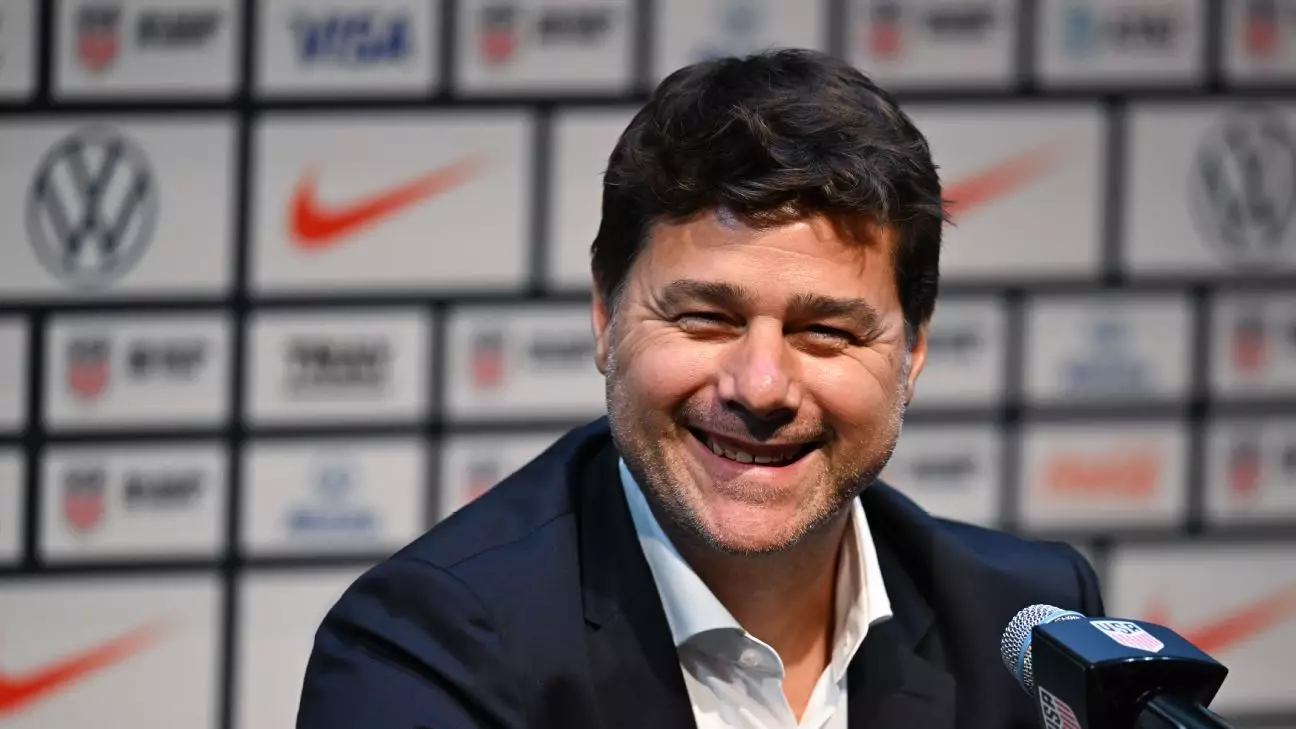The hiring of Mauricio Pochettino as head coach of the United States men’s national soccer team (USMNT) marks a pivotal moment in the sport’s evolution in America. This decision has been greeted with enthusiasm from players and fans alike, suggesting a significant shift in the way U.S. Soccer is positioning itself in the global landscape. Chris Richards, a defender for Crystal Palace, articulates this sentiment vividly. He views Pochettino’s appointment as indicative of a serious commitment to elevate soccer in the U.S. This ambition, evident in their choice of a world-renowned coach rather than a ‘safe’ option, inspires hope and excitement for the future.
Richards believes that Pochettino’s successful tenure in club football is a testament to what U.S. Soccer aims to achieve. He recognizes that this bold step speaks volumes about the federation’s willingness to strive for excellence. “Hiring a manager like Pochettino shows that you’re serious about growing the game,” Richards noted. This ambition aligns with U.S. Soccer’s long-term goals, particularly with the men’s World Cup scheduled to take place on American soil in 2026, an opportunity that many see as a chance to elevate the sport to new heights.
Richards, despite facing his own injury setbacks, remains deeply invested in the team’s trajectory. His injury may keep him from being part of the initial matches under Pochettino, but the excitement surrounding the direction of the team keeps him hopeful. With the matches against Panama and Mexico on the horizon, fans and players alike are poised to see how Pochettino’s philosophy will manifest on the field.
While the appointment of Pochettino signals progress, Richards also emphasizes the need for a broader shift in how soccer is accessed by young players across the country. He points to the existing ‘pay-to-play’ model as a significant barrier that prevents many talented individuals from engaging in the sport. “Football is the quickest growing sport in the U.S.,” he observes, but the financial demands associated with youth soccer often deter potential players, particularly from marginalized backgrounds. This insight highlights a crucial area that U.S. Soccer must address if they aspire to cultivate talent from all socioeconomic backgrounds.
Richards advocates for change, envisioning a future where soccer is financially accessible. “Once you eliminate the ‘pay to play’ aspect, the sport will definitely grow,” he claims. His words echo a call for a reevaluation of the financial structures surrounding youth soccer leagues. If soccer is to flourish in the U.S., implementing affordable, accessible programs will be essential.
The upcoming World Cup is an immense opportunity not only for the USMNT to showcase their skills but also for U.S. Soccer to cultivate a sustainable model that allows soccer to thrive at the grassroots level. Community-based initiatives and partnerships with local organizations can play a significant role in eliminating costs associated with playing the game. By investing in programs that provide free access to coaching and facilities, U.S. Soccer can encourage increased participation and a diverse influx of talent.
Meanwhile, other prominent players, such as Tyler Adams, are making strides as they recover and prepare for competitive match play. Despite his injury journey, Adams remains a crucial figure in the national team setup, further emphasizing the importance of depth and resilience in U.S. Soccer’s aspirations. His impending return will foster a sense of unity, showcasing the emerging strength of the team under new leadership.
As the U.S. men’s soccer team prepares to embark on this new chapter, the anticipation surrounding Pochettino’s coaching reign is palpable. Players like Richards exude optimism, setting high aspirations for the team’s performance in international competitions. The vision is clear: to win and be the best. Achieving this vision will require commitment from both players and stakeholders to address challenges such as inclusivity and accessibility.
The appointment of Mauricio Pochettino indicates the burgeoning ambition of U.S. Soccer. It is a move toward not just winning games but establishing a cultural significance in American sports. As the team prepares for the 2026 World Cup, the focus will not only be on sporting success but also on ensuring the growth and development of the sport at all levels. There is a sense of urgency and hope—the stage is set for a transformative era in U.S. Soccer.
